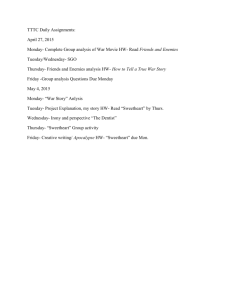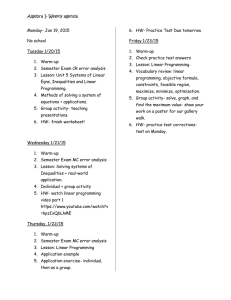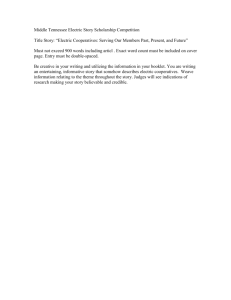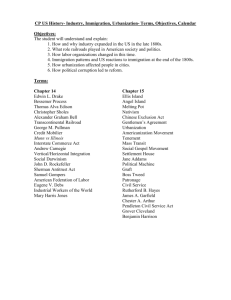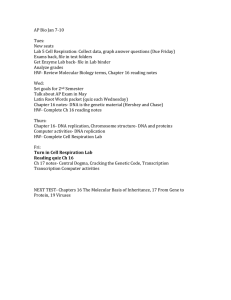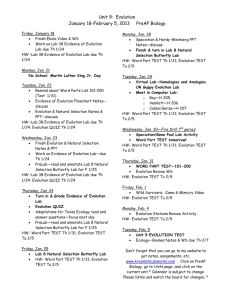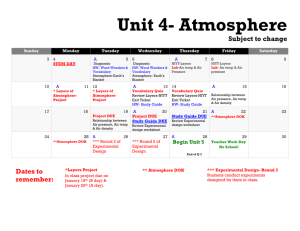! "#$%&'()!#*+$,#'*+! "-.!/011.234!56!2-.!781.!"95:3;81!#.<509;.<!&4<23202.!
advertisement
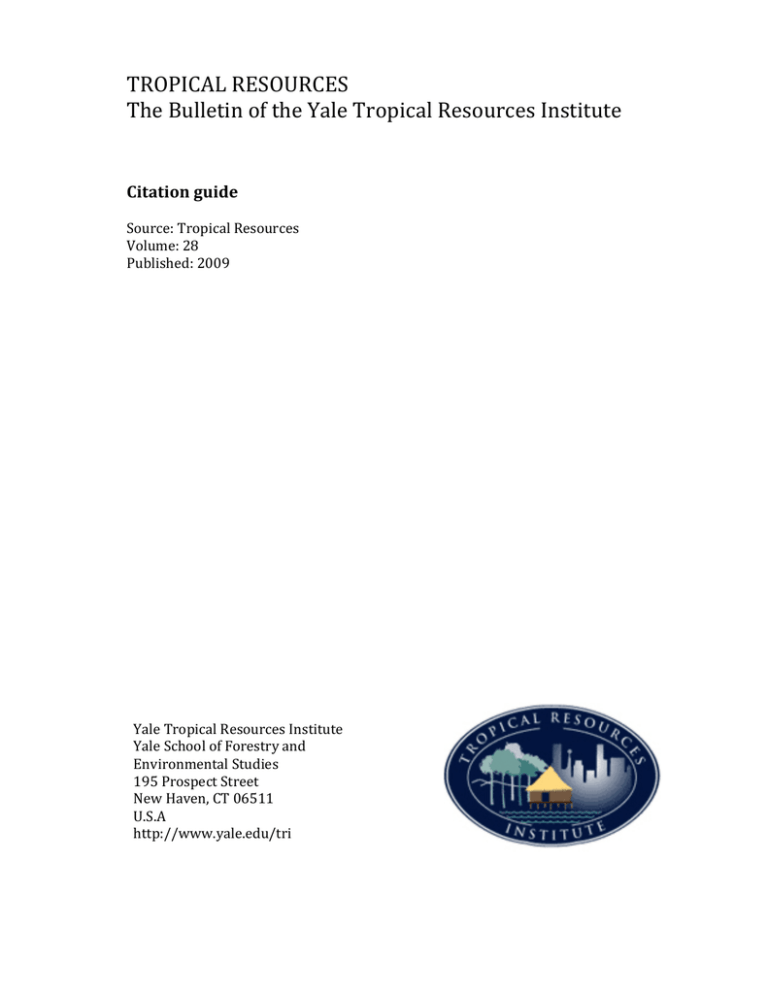
! ! "#$%&'()!#*+$,#'*+! "-.!/011.234!56!2-.!781.!"95:3;81!#.<509;.<!&4<23202.! ! ! ! ! "#$%$#&'!()#*+! ! +509;.L!"95:3;81!#.<509;.<! N510A.L!OP! %0Q13<-.?L!OIIC! ! ! ! ! ! ! ! ! ! 781.!"95:3;81!#.<509;.<!&4<23202.! 781.!+;-551!56!=59.<29>!84?!! *4@3954A.4281!+20?3.<! BCD!%95<:.;2!+29..2! E.F!G8@.4H!'"!IJDBB! ,K+K(! -22:LMMFFFK>81.K.?0M293!! ! ! ! ! ! ! ! ! The Emergence of Trash Picker Cooperatives and the Challenges to Social Inclusion Norio Takaki, MEM 2009 Introduction :[YLL[ZJH]LUNPUNVYPUMVYTHS[YHZOWPJRPUN has become an increasingly conspicuous activity in low and middle–income countries. Rural poverty and unemployment — resulting to a large extent MYVT[OLTLJOHUPaH[PVUVMHNYPJ\S[\YL·JVU[YPI\[LZ to the strong movement of peasants toward cities (Andersson, 2005). This creation and migration of poverty places tremendous pressure on urban centers for generating jobs and providing basic services and infrastructure to accommodate fast–growing WVW\SH[PVUZ;YHZOWPJRPUN[O\ZLTLYNLZHZHZ[YH[LN` MVYZ\Y]P]HS^OLYLQVIZMVY\UZRPSSLKSHIVYHYLZJHYJL and “waste” is amply available (Medina, 2007). )YHaPSPZHWHY[PJ\SHYS`LTISLTH[PJJHZLPU[OPZYLNHYK IV[OPU[LYTZVMP[ZOPNOYH[LZVM\YIHUPaH[PVU· 83% (Population Reference Bureau, 2008) — and of P[ZSHYNLWVW\SH[PVUVM[YHZOWPJRLYZ·LZ[PTH[LKH[ 400 thousand by Forum Lixo e Cidadania, a national 5.6[OH[WYV]PKLZZ\WWVY[[V[YHZOWPJRLYZ:PS]H 2007). Improvements in technologies to reprocess recyclable materials, combined with dramatic increases in waste outputs have contributed to transforming recycling into an economical and environmentally appealing alternative to extracting raw materials. This has led to the emergence of “waste” as a valuable commodity, much in contrast with its earlier Z[H[\ZHZHULU]PYVUTLU[HSL_[LYUHSP[`HUKOHaHYKous inconvenience. Recovery rates for aluminum PU)YHaPSMVYL_HTWSLHYLHTVUN[OLOPNOLZ[PU[OL world, exceeding even those of developed countries (ABAL, 2008). But this environmentally salutary fact, if contemplated through a broader socio–political and economic prism, reveals a not–so–commendable reality. To a large extent these rates are high because aluminum cans, being amongst the more valuable recyclables, are intensely sought after by street scavengers. Because of the low social status and economic fragility of this group of people, the HJ[P]P[`VMPUMVYTHS[YHZOWPJRPUNYHPZLZJVUJLYUHZP[ exacerbates historical patterns of inequality. In recognition of the challenges posed by this phenomenon to the development of urban societies HUKLJVUVTPLZZVTL)YHaPSPHUT\UPJPWHSP[PLZHUK the federal authorities have enacted legislation aiming to integrate solid waste management practices with other spheres of urban planning. Some of these SLNPZSH[PVUZ»LMMLJ[ZHYL[OLVMÄJPHSYLJVNUP[PVUVM [YHZOWPJRPUNHZHWYVMLZZPVUHUK[OLÄUHUJPHSZ\WWVY[MVY[OLMVYTHSPaH[PVUVM[OLHJ[P]P[`[OYV\NO[OL Figure 1. Workers sorting household trash at Cavalhada cooperative in Porto Alegre Tropical Resources Bulletin 27 Norio Takaki formation of cooperatives. The Integrated Solid Waste Management Program of the city of Porto Alegre, for instance, is one of the earliest examples of such types VMWVSPJPLZ0[Z¶`LHYL_WLYPLUJLWYV]PKLZHZVSPK reference point for assessing the challenges facing Brasilia, which plans to implement an integrated solid ^HZ[LTHUHNLTLU[VMP[ZV^U;OLWYLZLU[^VYRJVTpares municipal waste management practices in these two cities in examination of the professed potential of cooperatives to serve as mechanisms for social incluZPVUVM[YHZOWPJRLYZ0[KLZJYPILZTHQVYHK]HUJLZHUK still present challenges the two cities face in efforts to establish a socially inclusive, integrated model of solid waste management. Methods I chose Brasilia and Porto Alegre because they share fundamental cultural and economic traits that render them comparable despite their differences in terms of regional history. They are also faced with urban paradigms and challenges typical of large metropolitan areas of the developing world. At the same time, they represent two distinct stages of development in urban solid waste management. I conducted T`ÄLSK^VYRMYVTLHYS`1\UL[VTPK¶(\N\Z[ ^P[O[OLÄYZ[WOHZL[HRPUNWSHJLPU7VY[V(SLNYLMYVT 1\UL[OYV\NO;OLYLTHPUPUNWLYPVK^HZZWLU[ studying the solid waste management situation in Brasilia. Through semi–structured interviews and participant observation, I collected data of the coopera[P]L^VYRLY»ZX\HSP[`VMSPMLHUK^VYRPU7VY[V(SLNYL In Brasilia, data collection was accomplished through interviews and participant observation in meetings ^P[O]HYPV\ZZ[HRLOVSKLYZ Field Observations Porto Alegre With the creation of an integrated solid waste THUHNLTLU[WYVNYHTPU [OL^VYRPUNJVUKP[PVUZVMTHU`[YHZOWPJRLYZPU7VY[V(SLNYLOH]L PTWYV]LK.YV\WZ[OH[^VYRLKV\[PU[OLVWLUVU illegally settled land prior to the program now have HYVVM[V^VYR\UKLYHUKHKLX\H[LPUMYHZ[Y\J[\YL[V WLYMVYT[OLPYK\[PLZ;OLVYNHUPaH[PVUHSHUK[LJOUPcal support provided by government and NGOs has also allowed for some degree of professional empowerment. The formation of cooperatives creates mechanisms of democratic participation that support personal and political improvement. It should be noted, however, that there have not been studies KVJ\TLU[PUN[OLJOHUNLZPUPUJVTL[OH[OH]L[HRLU place after the creation of cooperatives. +LZWP[L[OLZLWVZP[P]LYLZ\S[Z[OYLLRL`MHJ[VYZ [HRLH^H`ZVTLVM[OLTLYP[VM[OLWYVNYHT-PYZ[S` the high dependence of the cooperatives on the municipal cleaning agency limits the program’s success. ;OLTHQVYP[`VM[OL^HZ[L[OL[YHZOWPJRLYZZLWHYH[L is provided by the cleaning agency while a small portion is donated directly by private businesses or government agencies. This generates patterns of dependency that places the cooperatives that are not on good terms with the cleaning agency at a disadvan[HNL-VY[LZ:LJVUKS`[OLOPNOKLWLUKLUJL and limited bargaining power of the cooperatives relative to the buyers/middlemen is concerning. It is rather surprising that direct sales to industry have not evolved into common practice, since both the cooperatives and industry stand to gain by eliminating the middleman. Because cooperatives have nei[OLYSVNPZ[PJHSUVYVYNHUPaH[PVUHSTLHUZ[VZJHSL\W production, they continue to sell to the middlemen, ^OVTJVU[YVSWYPJLZHUKTHRL[OLSPVU»ZZOHYLVM[OL WYVÄ[Z;OPYKS`[OLSV^SL]LSVMPU[LYHJ[PVUHTVUN[OL JVVWLYH[P]LZ^LHRLUZ[OLTWVSP[PJHSS`HUKWYL]LU[Z the constructive exchange of experiences and ideas. The fragmentation of groups of people that share the same social political and economic plight leaves them at a great disadvantage in terms of negotiating their claims and objectives. +\YPUNT`Z[H`PU[OLJHWP[HS0ZWVRL^P[O]HYPV\ZWLVWSLHZZVJPH[LK^P[OHUVYNHUPaH[PVU*,5TCOOP, and was invited on numerous occasions to attend and observe meetings among cooperative SLHKLYZHUKIL[^LLU[OLVYNHUPaH[PVUNV]LYUTLU[ institutions, and the University of Brasilia. CENTCOOP represents and gives administrative and legal support to all the cooperatives in Brasilia, was created PU)YHZPSPHPU;OLZLTLL[PUNZWYV]PKLKTL^P[O a solid understanding of the intricate lines of interest VWLYH[PUNPU[OLÄLSKVMYLJ`JSPUNHZ^LSSHZ[OLPU[LYHJ[PVUZHTVUNZ[[OL]HYPV\ZHJ[VYZVM[OPZUL[^VYR Brasilia This allowed me to see the internal and external difÄJ\S[PLZTVZ[JVVWLYH[P]LZPU)YHZPSPHMHJLMVYJYLH[PUN Porto Alegre’s model — with almost two JVOLZPVUHTVUNZ[[OLTZLS]LZHUKSLNP[PTPaPUN[OLPY decades of an integrated solid waste management activities vis à vis society and the government. system — highlights some of the obstacles facing 28 Volume 28, Spring 2009 Trash Picker Cooperatives and Social Inclusion Brasilia’s integrated waste management program. The same disjointedness seen among the [YHZOWPJRLYZPU7VY[V(SLNYLHSZVHMMLJ[Z[OLKPMMLYLU[ WHY[PLZVM[YHZOWPJRLYZPU)YHZPSPH0U[LYTZVMPUMYHstructure and equipment, however, Brasilia still lags far behind. The majority of the cooperatives do not JVUK\J[MVYTHSIVVRRLLWPUNHUKVUS`OHSMVWLYH[L PUI\PS[LU]PYVUTLU[Z·[OLV[OLYOHSM^VYR\UKLY the elements on illegally settled land. The majority is engaged in patron–client relationships with the only I\`LYVMYLJ`JSHISLZTHU`VM[OLTILPUNÄUHUJPHSS` indebted to this company20UKLI[LKULZZHSZV[HRLZ the form of “favors”, as is the case in which the I\`LY¸SLUKZ¹[OLTJVTWHU`[Y\JRZ;OLYLPZMLKLYHS TVUL`LHYTHYRLKMVY[OLJVUZ[Y\J[PVUVM[YPHNL\UP[Z and purchasing of equipment, but it awaits disbursement because most cooperatives do not have a place where they can legally build. And while all of the cooperatives have received a compactor to press their materials, those cooperatives without a land title or use concession cannot access the electrical grid and thus are unable to use the equipment. +LZWP[L[OLZLJOHSSLUNLZ[OLYLPZZPNUPÄJHU[ potential for a more successful integrated solid waste management system in Brasilia. As mentioned HIV]L*,5;*667PZHU\TIYLSSHVYNHUPaH[PVU for cooperatives, providing them with local political representation, logistical, administrative, and legal support, and negotiated prices of materials. In addition, CENTCOOP is trying to establish a central ^HYLOV\ZLMYVT^OPJO[VZLSSWYVK\J[PVUI`HSSHMÄSPH[LKJV¶VWZ;OPZJLU[YHSPaH[PVUOHZ[OLWV[LU[PHSMVY direct negotiation with industries without a middleman. Ideologically CENTCOOP is well grounded on principles of democratic participation, and embraces NVHSZVMLJVUVTPJHUKHKTPUPZ[YH[P]LZLSM¶Z\MÄJPLUcy, capacity building, and political independence. >OL[OLYVYUV[P[ZTPZZPVUZ[H[LTLU[^PSSJY`Z[HSSPaL in the real world will depend to a large extent on [OLJVU[PU\LKHJ[PVUVMHUL[^VYRVMVYNHUPaH[PVUZ )HURVM)YHaPS-V\UKH[PVU*HYP[HZ5.6Z<UP]LYsity of Brasilia) in terms of providing capacity buildPUN[LJOUPJHSHUKSLNHSHK]PZPUNHUKZVTLÄUHUJPHS support during the period of establishment of the cooperatives. Without the prospect of achieving self– Z\MÄJPLUJ`[OLWV[LU[PHSVM[OLJVVWLYH[P]LZ`Z[LT [VLTWV^LY[YHZOWPJRLYZ^PSSIL\UKLYTPULK(SZV important is the leadership role that the president of CENTCOOP embodies. His or her charisma and KPWSVTH[PJZRPSSPZLZZLU[PHSMVYMVZ[LYPUNJVOLZPVU and trust amongst the groups of cooperatives. Conclusion Despite the overall improvements in waste management in Porto Alegre, the effects of the city’s PU[LNYH[LKTVKLSVU[OLSP]LZVM[YHZOWPJRLYZ^VYRing in cooperatives fall short of the professed goals. ;OLVJJ\WH[PVUPZZ[PSSOPNOS`THYNPUHSPaLKPUJVTLZ vary amongst the different cooperatives, with the THQVYP[`MHSSPUNILSV^)YHaPS»ZTPUPT\T^HNL (which is less than 200 US dollars per month), there PZOPNO^VYRLY[\YUV]LYWYV]PZPVUVMLK\JH[PVUHUK capacity building is minimal, job security or health JHYLILULÄ[ZHYLUVUL_PZ[LU[UVJVVWLYH[P]LPZH self–sustaining enterprise, and favoritism on the part of the government agency generates competition and causes fragmentation amongst the cooperatives. These facts demonstrate that well–meaning policies in and of themselves are not enough to change social behavior and political practices; a Z[Y\J[\YLVMJOLJRZHUKIHSHUJLZULLKZ[VILPU place to guarantee transparency, accountability, and the equitable distribution of political leverage and economic bargaining power. Furthermore, notwithZ[HUKPUN[OL]HYPV\ZKLNYLLZHUKKLÄUP[PVUZVMZVJPHS inclusion (ranging from the basic economic inclusion in the form of a job to equal access to public services to the acceptance of minority groups by Figure 2. Interior of a cooperative’s sorting unit in Brasilia. The workers are wearing uniforms provided by the sole buyer, Capital. Tropical Resources Bulletin 29 Norio Takaki mainstream society and the state), the stigma asZVJPH[LK^P[O[OL^VYRVM[YHZOWPJRPUNWYVWHNH[LZ patterns of exclusion. I contend that in this particular occupation, where the material waste from society converges with the economically obsolete, the displaced and KPZWVZZLZZLKWLVWSLVM)YHaPSPHUZVJPL[`[Y\LZVJPHS inclusion is not possible without public participation in the form of separation of household garbage from ZVSPKYLJ`JSHISLZ^OPJO^V\SKZPNUHSHJRUV^SLKNLTLU[VM[OL[YHZOWPJRLYZ^VYR,MMLJ[P]LZLWHYHtion at the household level would greatly increase recovery rates due to lowered contamination of solid ^HZ[LI`º^L[»VYNHUPJTH[[LYHUKMHJPSP[H[L[OL^VYR VM[YHZOWPJRLYZH[[OL[YPHNL\UP[Z;OL]LY`UV[PVUVM development and social change by way of top–down “social technologies” is critiqued here. This critique is particularly meaningful in the context of Brasilia, [OLX\PU[LZZLU[PHS)YHaPSPHUL_HTWSLVMH<[VWPH[OH[ hoped to promote social change through formulas VMZWH[PHSJVUÄN\YH[PVU3. Furthermore, questions are raised regarding the wisdom of the waste management policies of both cities (and of federal policies themselves) in pushing for the eradication of informal street scavenging while offering alternatives that have not been proven to be effective from the socio– economic standpoint. (JVUZ[Y\J[P]L[HJ[PJ[V[HRLPZ[VYHPZLH^HYLness about the valuable social, environmental, and LJVUVTPJJVU[YPI\[PVUZVM[OL[YHZOWPJRLYZ;OL`HYL agents of their own inclusion by pursuing an honest form of income, perhaps one of a few available to [OLT;OL[YHZOWPJRLYZHYLLU]PYVUTLU[HSHNLU[Z for reasons already explained elsewhere; they are an essential part of an economic production chain. ;OYV\NO[OLPYSV^WH`[OL`Z\IZPKPaLJVTTLYJPHS operations and supply a service that in certain countries is seen as a duty of the government, and which [O\ZMHYPUTHU`JP[PLZPU)YHaPSOHZILLUWYV]PKLK virtually free of charge to the state. Implementing a solid waste management system faces the challenges of overcoming entrenched social attitudes and historical practices of waste management to enable a ]PHISLZ`Z[LT[OH[PZIV[OOLHS[OM\SHUKILULÄJPHS[V [OLLU]PYVUTLU[HUK[OL[YHZOWPJRLYZ Notes BD [2] 30 *LU[YHSKL*VVWLYH[P]HZKL4H[LYPHPZ9LJPclaveis do Distrito Federal This company holds a monopoly on the Volume 28, Spring 2009 BD JVTTLYJPHSPaH[PVUVMYLJ`JSHISLZ[OH[PZHSS recyclable materials in the Federal District are sold (directly or through middlemen) to this company, which then sells directly to industry. )YHZPSPH»Z\YIHUWSHUHUKHYJOP[LJ[\YLYLÅLJ[ high modernist principles of spatial order HUKJVUÄN\YH[PVUI`^OPJOJSHZZKPZ[PUJ[PVUZHYLTPUPTPaLK-VYL_HTWSLYLZPKLU[PHSI\PSKPUNZSVVR[OLZHTLMYVT[OL V\[ZPKLYLNHYKSLZZVM[OLWYVMLZZPVUHSYHUR of occupants. Acknowledgements I extend my gratitude to all the people and institu[PVUZ^OVJVU[YPI\[LK[V[OPZYLZLHYJO4HU`[OHURZ[V the Tropical Resources Institute, the Hixon Foundation, and the Council for Latin American and Iberian Studies MVY[OLPYÄUHUJPHSZ\WWVY[HUK[VT`HJHKLTPJHK]PZVY 7YVMLZZVY4PJOHLS+V]LMVYOPZPU]HS\HISLMLLKIHJRHUK LUJV\YHNLTLU[0^V\SKHSZVSPRL[V[OHUR9VULP(S]LZKH Silva, Monica Oliveira, Ceiça, Ivanilde, Sr. Assis, and Sr. *VJ}MYVT*,5;*667MVY[OLPYHZZPZ[HUJLPU[OLÄLSK References ()(3)YHaPSPHU(S\TPU\T(ZZVJPH[PVUO[[W! www.abal.org.br/english/noticias/lista_noticia. HZW&PK$ Andersson, F. 2005. Ações do Poder Público Municipal Para o Setor de Reciclagem de Resíduos Sólidos em Porto Alegre: Um Estudo Exploratório. Master Thesis. Federal University of Rio Grande do Sul, School of Management, Porto Alegre. -VY[LZ4Um Estudo Sobre a Rede de Apoio das Associações de Triagem do Setor de Reciclo na Região Metropolitana de Porto Alegre. Master Thesis. Federal University of Rio Grande do Sul, School of Management, Porto Alegre. Medina, M. 2007. The World’s Scavengers: Salvaging for Sustainable Consumption and Production. AltaMira Press, Lanham, Maryland. The Population Reference Bureau. 2008. 2008 World Population Data Sheet. http://www.prb.org. Silva, P.H.I. 2007. Análise das Relações Reciprocitárias em Cooperativas de Trash pickers de Lixo de Brasília. Master Thesis. University of Brasília: Institute of Social Sciences, Sociology Department, Brasília.
